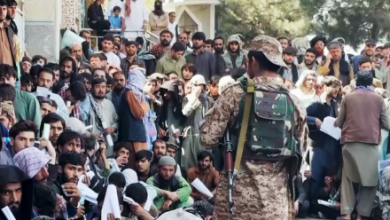Mongolian Prime Minister Resigns After Controversy Over Son’s Lavish Lifestyle Photos
Luvsannamsrain Oyun-Erdene, the Prime Minister of Mongolia, resigned following weeks of public outrage and protests triggered by the release of photos showcasing his son’s extravagant lifestyle on social media.
The images, which depicted a luxurious way of living, sparked widespread criticism in a country where a significant portion of the population grapples with economic hardship. On Tuesday, June 3, 2025, Mongolia’s parliament passed a vote of no confidence, effectively ending Oyun-Erdene’s tenure as prime minister.
Background of the Controversy and Public Response
The controversy erupted when photos of Oyun-Erdene’s son surfaced on social media, showing him enjoying lavish trips, expensive possessions, and frequenting high-end venues. These images provoked significant backlash in Mongolia, a nation facing economic challenges and widespread poverty. For weeks, protesters gathered in the streets of Ulaanbaatar, the capital, demanding transparency and accountability from government officials.
The controversy erupted when photos of Oyun-Erdene’s son surfaced on social media, showing him enjoying lavish trips, expensive possessions, and frequenting high-end venues. These images provoked significant backlash in Mongolia, a nation facing economic challenges and widespread poverty. For weeks, protesters gathered in the streets of Ulaanbaatar, the capital, demanding transparency and accountability from government officials.
Oyun-Erdene, in response, vehemently denied any allegations of corruption and claimed the photos were part of a “smear campaign” orchestrated to tarnish his reputation. Speaking before the parliament’s vote, he accused his critics of pursuing a politically motivated agenda to discredit him and his family. However, his defense failed to quell public anger or alleviate political pressure.
Anti-Corruption Investigations and Transparency Issues
Local media reported that Mongolia’s anti-corruption agency has launched an extensive investigation into the financial affairs of Oyun-Erdene’s family, focusing on the source of his son’s wealth and any potential links to illicit activities or abuse of power. While details of the investigation remain undisclosed, public and international pressure for greater transparency continues to mount.
Local media reported that Mongolia’s anti-corruption agency has launched an extensive investigation into the financial affairs of Oyun-Erdene’s family, focusing on the source of his son’s wealth and any potential links to illicit activities or abuse of power. While details of the investigation remain undisclosed, public and international pressure for greater transparency continues to mount.
According to Transparency International’s 2024 Corruption Perceptions Index, Mongolia ranked 114 out of 180 countries, reflecting a decline in governmental transparency during Oyun-Erdene’s leadership. The country’s economy, heavily reliant on mineral exports, has faced structural challenges and growing economic inequality, further fueling public discontent.
Political and Social Implications
Oyun-Erdene’s resignation marks a significant political turning point for Mongolia and underscores the growing influence of social media in shaping public opinion and holding leaders ACCOUNTABLE. The rapid spread of the controversial images online served as a catalyst for protests, highlighting the power of digital platforms in amplifying public scrutiny.
Oyun-Erdene’s resignation marks a significant political turning point for Mongolia and underscores the growing influence of social media in shaping public opinion and holding leaders ACCOUNTABLE. The rapid spread of the controversial images online served as a catalyst for protests, highlighting the power of digital platforms in amplifying public scrutiny.
Political analysts suggest that this resignation could have far-reaching consequences for Mongolia’s political landscape. As a fragile democracy surrounded by authoritarian regimes, Mongolia faces ongoing challenges such as corruption, economic disparity, and public dissatisfaction. The no-confidence vote may pave the way for shifts in government composition and future policies.
Future Outlook
Following Oyun-Erdene’s resignation, Mongolia’s parliament is expected to initiate discussions to appoint a new prime minister, a process likely to involve intense political competition as opposition parties seize the opportunity to strengthen their influence. Meanwhile, ongoing anti-corruption investigations may reveal further details about the financial dealings of Oyun-Erdene’s family and other high-ranking officials, potentially increasing pressure for systemic reforms.
Following Oyun-Erdene’s resignation, Mongolia’s parliament is expected to initiate discussions to appoint a new prime minister, a process likely to involve intense political competition as opposition parties seize the opportunity to strengthen their influence. Meanwhile, ongoing anti-corruption investigations may reveal further details about the financial dealings of Oyun-Erdene’s family and other high-ranking officials, potentially increasing pressure for systemic reforms.
The protests have also highlighted a broader public demand for transparency and accountability. Civil society groups and activists are calling for comprehensive reforms to strengthen anti-corruption measures and enhance oversight institutions. This episode may further empower social media and civil society to play a more active role in monitoring government actions.





